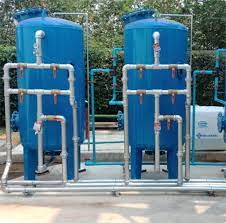Water is life, and as our environmental consciousness grows stronger, so does our desire for cleaner, greener means of handling it. The water purification industry is undergoing a low-key revolution driven by technology, public health needs, and increasing imperatives to preserve the environment. In 2025, the future of water treatment in Lakeland, FL, will not only be about cleaning H₂O but also about safeguarding communities, responding to climate change, and getting ready for future water shortages. From high-tech filtration systems to AI-driven infrastructure, innovations are needed. This article explores the most significant trends to watch in 2025 and why they are more crucial than ever.
- Intelligent Water Technology Is Revolutionizing Infrastructure
AI and smart sensors are transforming the management of water systems. Instead of relying on total manual testing and fixed schedules, sensors installed inside pipes and treatment plants can now track water quality in real-time. This allows technicians to detect contaminants in real-time, track usage patterns, and adjust treatment levels instantly. The result is a more efficient, quicker system that conserves water and is more secure. As we move deeper into the digital age, smart water technology is evolving into the foundation of the new water utility model.
- High-Tech Filtration Goes Mainstream
Filtration has always been at the heart of water purification, but advancements are now making high-end systems affordable and scalable. Reverse osmosis and nanofiltration are also being revolutionized to remove even minute impurities with reduced energy. Graphene and ceramic membranes are the new materials replacing old systems that were bulky and inefficient. Such revolutions mean that both home and business customers can have cleaner water without additional costs. With greater access, both small and large communities will be able to achieve measurable improvements in water purity.
- Decentralized Systems Gain Ground
Traditional methods rely on enormous, centralized plants that clean water and pipe it dozens of miles. But this paradigm is being disrupted by decentralized, modular systems that bring clean water close to where it is consumed. These systems are specifically ideal for single-family residences, small communities, or areas in which infrastructure renovation is sluggish or not possible. Not only do they reduce pressure on large systems, but they also speed response time when accidents such as natural disasters do take place. Decentralized treatment is gaining favor because it brings flexibility, durability, and customizability into an ever-changing climate.
- Green Chemistry Is Minimizing Environmental Footprint
Chemicals have been the convenient evil of choice for ages, effective at killing objectionable microbes, yet having environment hazards of their own. There is a major shift in 2025 towards green chemistry, as companies are placing bets on non-polluting, biodegradable options. The new generation of products is similar to their predecessors but doesn’t have dangerous byproducts left behind. With mounting regulations and consciousness, environmentally friendly technologies are now sought after and widely utilized. It is a massive shift towards sustainability without compromising water safety.
- Water Recycling and Reuse Are Mainstreaming
Water recycling is no longer an option; it is a necessity. Home water recycle and reuse via greywater systems to provide toilets and irrigation are becoming the norm in many new developments. In business, factories recycle used water numerous times before discharge, and savings are being made, plus the environment is reaping dividends. With more droughts and water shortages growing in prominence, communities are now being urged to view water as a renewable asset, not an expendable one. Recycling and reuse initiatives will dominate any treatment strategy seriously made in 2025.
As these trends continue to emerge, they present communities with the opportunity to become more resilient, more sustainable, and more self-reliant. Regardless of whether smart systems, green chemistry, or decentralized access are employed, the future will redefine the way we value and use our most valuable asset. For homebuilders, corporate executives, and cities, it’s not a choice to stay ahead of the information curve, but a necessity. Water is no longer simply that which flows out of the faucet; it’s a resource we must actively defend and innovate.
Are you ready to be part of the water purification revolution? Whether you’re looking to upgrade your home system or invest in cutting-edge solutions for your business, now is the time to take action. Call the experts at Vanguard Plumbing Services at 863-271-7988 for more information.
FAQs
- What is the most significant innovation to watch out for in 2025?
AI- and real-time sensor-based intelligent water systems are the most significant innovation to watch out for. These technologies allow for real-time contaminant detection and adaptive treatment, making everything more efficient and safer.
- Is it safe to utilize recycled water for residential and industrial uses?
Yes, after treatment, recycled water is purer and more economical than necessary for its final use. For irrigation, toilet flushing, or industrial processing, sophisticated recycling facilities purify the water to a high level of reliability.































